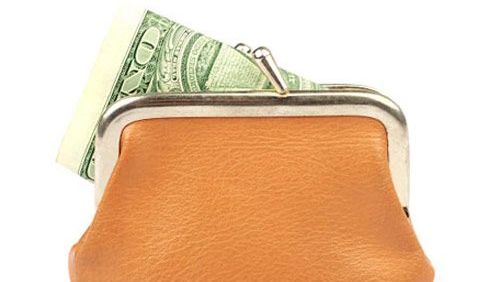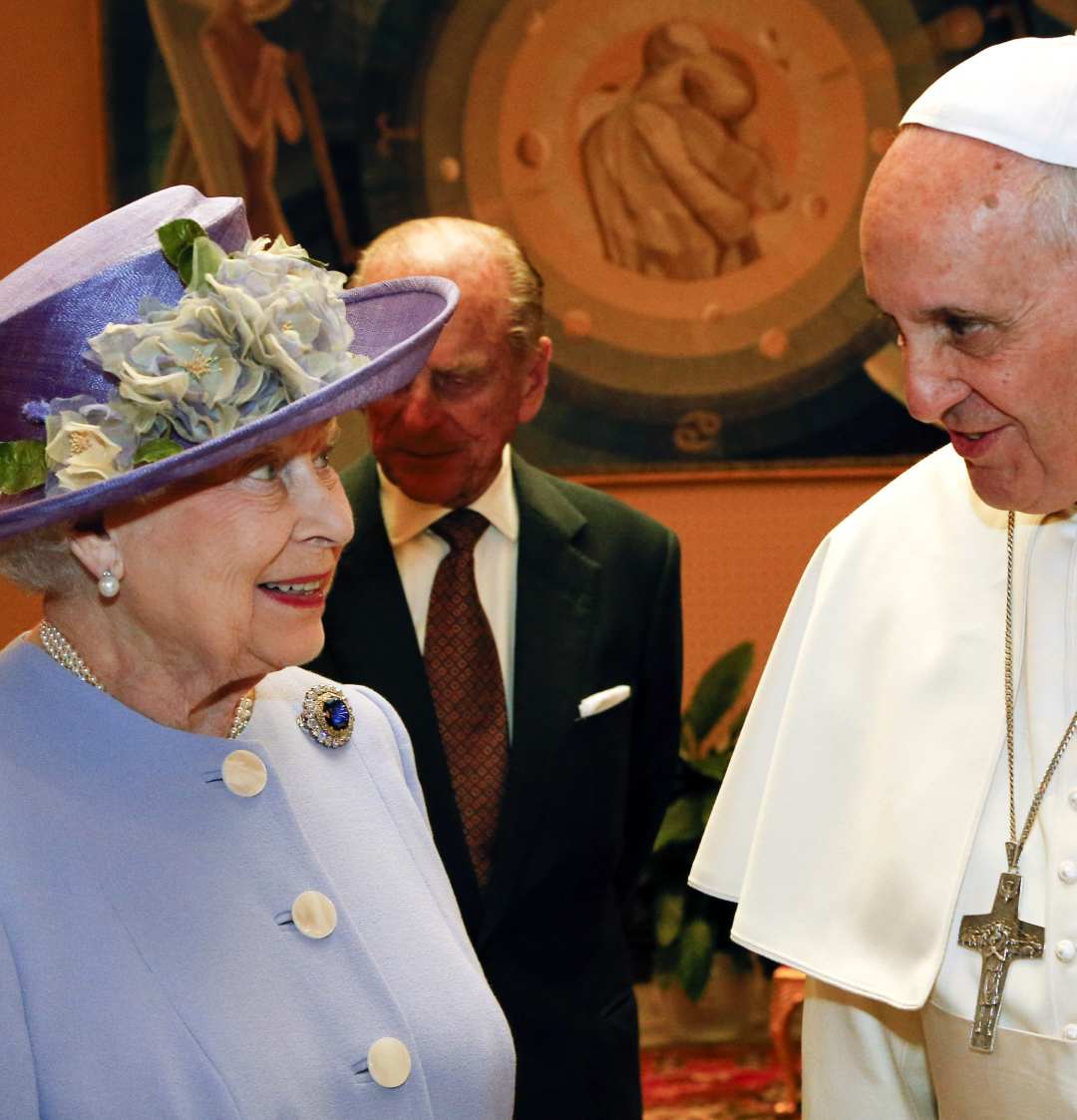The Million-Dollar Question
We're better educated, better read, and better at launching a business. So why, when it comes to managing money, do women lag behind?

I know this sounds positively sick, but I've never been more anxious and miserable than during the two years when I had a surplus of cash. I won't bore you with the numbers, but let's just say that in my early 30s, after years of financial struggle, I suddenly landed a gig that earned me a sizable chunk of money. Now, before you get all jealous or take offense at my bringing up the subject, I must emphasize that prior to this windfall, my income was so pitiful (the year before that I grossed $12,000 — you heard right, grossed) that if you added my new bundle of cash to my previous decade's earnings, the yearly income would probably average out to the salary of an entry-level postal worker. The money was life-changing, and after paying off my considerable debt and opening a retirement account, I had enough left over to burn a hole in my pocket the size of a lunar crater.
Problem was, I felt like my skin was charring off from the stress of financial success. After more than 10 years of worrying about money on a daily, if not hourly, basis — we're talking collection calls, electricity shutoffs, waiters sheepishly informing me of "a problem" with my credit card — the experience of handling an ATM receipt with a robust positive balance was not unlike the pressure (I imagine, though I can't verify) of running a small, industrialized nation. Too paralyzed to either invest it or buy a big-ticket item, like a sports car, I splurged on a lot of sushi and expensive hand cream. Depression ensued.
I tell this story only by way of trying to figure out what it is about money that makes women so uncomfortable. That's not to suggest that women are genetically incapable of handling financial matters (for the record, one in five women feels "solid" in her investing skills, according to a new study by Allianz Life Insurance — they just don't happen to live in my neighborhood). Nor do I mean to imply that I crave the salad days of my 20s (though salads might not be such a bad idea, considering the average American woman will be outearned by her male counterpart by $500,000 by the time she retires). But as time goes on, I realize that, for me, financial insecurity has itself been a kind of security blanket. Sure, I hated being broke, but I was more comfortable developing an identity around fiscal irresponsibility than I was running with the big dogs with even bigger bank.
It was only two years after my influx of funds — when I bought a house, drained my accounts, and signed a mortgage three times the size of all my previous debts combined — that I realized how insidious this pathology was. With a bank balance back at zero, I began to feel like myself again.
Granted, I may be in the upper tier of recklessness. Not only can I overspend with the best of them, I've also had the distinction of avoiding steady jobs for the better part of 15 years, which makes my monetary life something of an extreme sport. But when I look around at the women I know, it seems that along with the sofas and ottomans and shabby-chic lamps we purchase with our hard-earned income, there's a very large elephant in the room (no, that's not a footstool) that we'll do anything to avoid talking about. That's right — according to a poll in Money magazine, only 22 percent of us want to discuss investment decisions; a mere one in four is willing to broach retirement savings with our spouses. As willing as we are to gab about plastic surgery, urinary-tract infections, and sex, we just don't like to talk about money.
Like a mysterious bug in an otherwise high-functioning hard drive, women's reluctance to face money issues head-on belies the degree to which we've become experts on managing almost every other aspect of our lives. Let's face it: In a lot of areas, we're leaving men in the dust. We go to college and graduate school in greater numbers, we read more novels, we're starting our own businesses at twice the rate of men. We've always lived longer, which you'd think might motivate us to take a projectional view when it comes to money. But instead, many of us remain willfully clueless about the whole enterprise.
We've all found ourselves out to dinner with a group of intelligent, articulate women who ably dissect political poll numbers and debate the Sunday Times book reviews over grilled salmon and chardonnay — and then, when it's time to split up the check, transform into silly girls who'd rather repair to the ladies room than participate in a very public money moment (looking cheap being the one sin worse than looking poor). It's a powerful contradiction — almost as if our ability to handle our own money represents the final frontier of feminism — and perhaps we're more afraid of crossing into that frontier than we realize.On the other hand...maybe we're just bored by the whole subject. Unlike men, for whom money is an extension of masculinity and therefore a source of endless fascination, some of us would rather be home feeding our fish than talking about stock options and interest rates. As banal — and even insulting — as it sounds, we (OK, I) would often rather spend our money before we have a chance to think too hard about what else we might do with it. And while there's some evidence that the bulk of our spending tends to be on smaller things — manicures and shoes and fish tank accessories — we can more than hold our own against the boys when it comes to unleashing our load on the largest investment most people make in their lives. Single women now purchase homes in far greater numbers than men — 21 percent of homes in 2005 were bought by single women versus 9 percent by single men, according to a National Association of Realtors survey.
Stay In The Know
Get exclusive access to fashion and beauty trends, hot-off-the-press celebrity news, and more.
It goes without saying that you've got to pile up more money to spend more money, so it's a peculiar phenomenon that many of us would rather witness our own invasive surgery on cable TV than gaze into the abyss of our IRAs and stock portfolios. Moreover, how can we be so famously "detail oriented" while shying away from crucial financial details that directly impact our well-being?
I offer as an explanation the fact that some details (nail-polish colors, types of olive oil) are inherently more entertaining than others (see "stock portfolios," previous page). It's also possible that we suffer from something you might call Cinderella-Syndrome Backlash. Not so long ago, many women — including those who read Erica Jong novels and wore shoulder-padded blazers to work — operated (sometimes unconsciously) under the mind-set that keeping a balanced checkbook was less important than finding a man to balance it for us. Today, even those of us who scoff at such retrograde thinking are still aware of its implications: If I take an active role in my financial future, does that mean I'm no longer banking on meeting my prince? Can an act of self-preservation become a self-fulfilling prophecy?
This is not something most of us express out loud. I'd deny it if you asked me, but I'd also be lying if I said I didn't imagine my future as something that will be at least partially funded by someone else. (Though I'm nothing if not realistic; by "partially" I mean "part of an ice cream cone.") It's a psychological need as much as a practical one: Even women with high incomes are more likely to get a divorce if their paychecks exceed their husbands'. (Of course, that's largely because women in bad marriages are better able to get out of them if they have the means to do so — but there may be other, subtler factors at work, too.) Moreover, in 60 percent of households where women are the primary earners, men still make the financial decisions, according to a CNN survey. How's that for irony?
Susan Stewart, chairman and president of Charter Financial Group, Inc., a Washington, DC, investment firm, says she sees plenty of clients who run into marital troubles when the wife is making more cash.
"A paradigm I witness a lot," says Stewart, "is women earning a substantial amount of the household income, plus taking care of children and quarterbacking the household duties. That can emasculate men. It's not so much that the women are outearning their husbands, but that they're also doing everything at home." In fact, once women have money, says Stewart, they become self-sufficient machines in ways men never could. "At a certain point, it's easier for women to do it themselves than ask their husbands to help out." So, by leaving men in charge of the finances — even when those finances are largely generated by the women — it softens any potential threat to the species known as "house husbands."
For my money (what's left of it), I think our uneasy relationship with our finances has a lot to do with our self-image — specifically, the premium placed on keeping up the external image of success. From a very young age, women are given the message, in a way that men just aren't (by parents, advertisements, movies), that being successful means looking successful, and the older we get, the more money we think we have to spend in order to meet the standard. Forget about feeding our 401Ks; it's the expensive haircuts and personal trainers that are the real investments with immediate payoffs — namely, earning us our rightful place in the social pecking order. And while we know it's not such a great idea to tap into our overdraft-protection lines of credit to buy a new pair of calfskin boots that are only slightly different from the pair already in our closet, there is still that niggling question: What if the new pair is the perfect thing to wear to the highfalutin corporate blah-blah? What if attracting the right people at the blah-blah could lead to a long-awaited promotion and a raise?
And so the cycle continues: We earn a bit, we spend a lot, we soothe our guilt by buying even more (new boots, new briefcase, new pair of breasts?), with the vague idea that these accoutrements will land us the job or the husband or create the momentum that will save us from ourselves. I would like to tell you I've discovered the solution — but even as I write this, I can't bear to open my Visa bill (though I really, really dig the brocade coat I bought with my card). But I can share with you an epiphany I've had during my roller-coaster ride through the world of money: Everyone tells you that they are afraid of being poor. And that makes sense, logically, but it's not really true. The women I know (and I consider myself leader of the pack) are afraid of money itself. We are ballsy go-getters in our careers and our social lives, not afraid to pursue the best title in the company or reservations for the toughest table in town. But deep down, success that arrives in the form of a fat paycheck is cold comfort. Easier to spend it all the way down to a familiar zone of zero and focus on the things we've been raised to think matter — good looks, rich man, right job. As determined as we are to have it all, maybe it's time we learn what it means to have enough.
-
 I Injected My Body's "Liquid Gold" to Address Undereye Fine Lines and Dark Circles
I Injected My Body's "Liquid Gold" to Address Undereye Fine Lines and Dark CirclesBut would I do it again?
By Michelle Rostamian
-
 Queen Elizabeth Gave the Perfect Response When Pope Francis Presented Her With Priceless Gifts for Prince George
Queen Elizabeth Gave the Perfect Response When Pope Francis Presented Her With Priceless Gifts for Prince GeorgeThe late pope spared no expense when it came to treating the infant prince in 2014.
By Kristin Contino
-
 Want Healthier-Looking Hair? This Unexpected Beauty Product Might Be the Answer
Want Healthier-Looking Hair? This Unexpected Beauty Product Might Be the AnswerSkip the shampoos, glosses, and treatments.
By Marie Claire Editors
-
 Peloton’s Selena Samuela on Turning Tragedy Into Strength
Peloton’s Selena Samuela on Turning Tragedy Into StrengthBefore becoming a powerhouse cycling instructor, Selena Samuela was an immigrant trying to adjust to new environments and new versions of herself.
By Emily Tisch Sussman
-
 This Mutual Fund Firm Is Helping to Create a More Sustainable Future
This Mutual Fund Firm Is Helping to Create a More Sustainable FutureAmy Domini and her firm, Domini Impact Investments LLC, are inspiring a greater and greener world—one investor at a time.
By Sponsored
-
 Power Players Build on Success
Power Players Build on Success"The New Normal" left some brands stronger than ever. We asked then what lies ahead.
By Maria Ricapito
-
 Don't Stress! You Can Get in Good Shape Money-wise
Don't Stress! You Can Get in Good Shape Money-wiseFeatures Yes, maybe you eat paleo and have mastered crow pose, but do you practice financial wellness?
By Sallie Krawcheck
-
 The Book Club Revolution
The Book Club RevolutionLots of women are voracious readers. Other women are capitalizing on that.
By Lily Herman
-
 The Future of Women and Work
The Future of Women and WorkThe pandemic has completely upended how we do our jobs. This is Marie Claire's guide to navigating your career in a COVID-19 world.
By Megan DiTrolio
-
 Black-Owned Coworking Spaces Are Providing a Safe Haven for POC
Black-Owned Coworking Spaces Are Providing a Safe Haven for POCFor people of color, many of whom prefer to WFH, inclusive coworking spaces don't just offer a place to work—they cultivate community.
By Megan DiTrolio
-
 Where Did All My Work Friends Go?
Where Did All My Work Friends Go?The pandemic has forced our work friendships to evolve. Will they ever be the same?
By Rachel Epstein